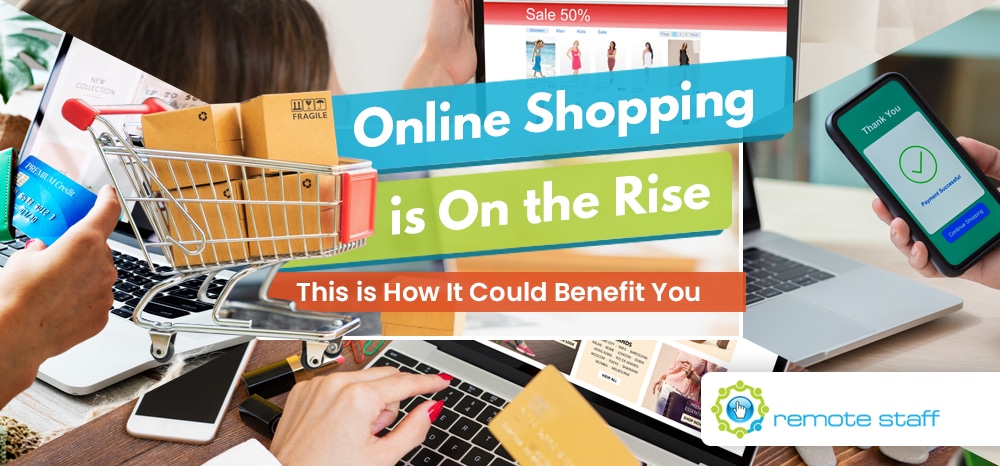Come on, you’ve probably done it at least once in the past week.
I’m talking about online shopping, of course. Whether it’s groceries for your fridge and pantry or furniture for your home office, chances are you purchased them with a few clicks.
Online shopping isn’t exactly new, of course. E-commerce in Australia has been steadily growing for years. It also happens to be one of the few industries to benefit immensely from the COVID-19 pandemic.
Sure, that’s not quite welcome news for retail landlords, but for everyone else, this could be a game-changer.
How the COVID-19 Pandemic Turbocharged AU’s Transition to Online Retail

Prior to the pandemic, Australians have been relatively slow to shift to online shopping. Just last year, department stores enjoyed record levels of growth. Australia Post even predicted that online shopping would account for 16-18% of all retail spending by 2025 in the same time period.
However, COVID-19 accelerated all of that. In April alone, 5.2 million people did their shopping online, pushing the timeline for 15% of retail spending going online up to by the end of this year.
So, how did this happen? First of all, there’s the nature of the disease. COVID-19 spreads through frequent transmissions, hence the need for a lockdown period. Thus, customers turned to online shopping to keep their essentials stocked.
Secondly, there’s the innate convenience of online shopping. It eliminates the need for going to different locations to acquire a particular item or to complete a grocery list, for one. It can also be done at any hour of the day, for another. And it’s just so fast and easy. With a few clicks, you can arrange for a weeks’ worth of groceries brought to your doorstep within hours.
Little wonder then that consumers are unlikely to veer away from this trend even after the pandemic.
Is This The End of Retail Centres?

Well, not quite. Also, not if retail landlords act fast and make key changes.
It’s true that many companies will be injecting more resources into their digital channels. They’re also likely to close a number of their brick and mortar stores. However, physical stores will still be relevant. People will still want a place to browse and buy from. There’s still no substitute for personally trying on items like shoes or clothes, for instance, to check if they fit right or if they suit you.
Some physical stores also remain critical to a company’s digital success. Think of the click-and-collect business model, for example.
Should retail lessors want to stay in business, they may want to reconsider more flexible terms of lease. The traditional five-year contract with 5% annual increases might not work anymore, not when physical locations aren’t as big a guarantee of foot traffic as they used to be.
What Opportunities Does This Bring?

If you happen to be a business owner leasing a space in a commercial center, this shift gives you considerable leverage. When even the once-thriving CBD shopping districts are starting to resemble ghost towns, landlords can no longer afford to ignore their tenant’s pleas for more sustainable contracts. They’re likely to restructure their properties too, possibly converting unused spaces for non-retail purposes such as offices or eateries.
This would, of course, simply fuel the digital retail revolution further.
Should you wish to fully migrate your retail operations online, the timing couldn’t be better. The same goes for entrepreneurs who’ve always wanted to start an online business, but were unsure about the demand.
A word of caution, though. Before you get all excited and open your Shopify account, do note that competition on the online marketplace is rife. With so many heavy hitters going online, SME’s need to bring their A-game if they wish to stay afloat. Apart from ensuring the quality of your product or service, you’ll need to maintain a good social media presence, cultivate top-notch customer service, and mind your website’s SEO so that you remain visible to the right customers.
Fortunately, there are ways to do all that even if you’re not an expert in any of those areas. There are plenty of remote workers out there that specialise in creating good content that will help you build a trustworthy brand, providing exceptionally warm customer service, and even propelling your website to the top of the search engine results.
With Remote Staff’s expertise and rich talent pool, we are especially poised to help you fill your remote hiring needs and guide you every step of the way.
So, don’t hesitate. If you’ve got a groundbreaking idea for an online business, contact us and let us help you turn that into a reality. TODAY.
Serena has been working remotely and writing content for the better part of the last decade. To date, she's written for Pepper.ph and Mabuhay Magazine, among others, and has churned out more than a thousand articles on everything from The Basics of Stock Market Investing to How to Make Milk Tea-Flavored Taho at home. Hermits, aspiring hermits, and non-hermits with interesting project propositions may email her at serena.estrella10@gmail.com.





















